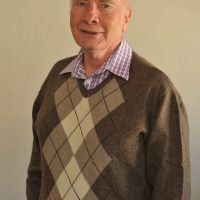The festive vacation season can be particularly difficult for those struggling with addiction – those who have not yet come to terms with their substance abuse, the recently rehabilitated as well as the families of addicts. Being prepared is the best way to navigate through the season of excesses. Des Wilkinson, Clinical Psychologist at Riverview Manor, advises.
Addiction and overindulgence
Both addicts and their families and friends can avoid the pitfalls of overindulgence, remove obvious temptations such as alcohol and be on the lookout to help those who are most vulnerable.
The festive seasons gives people time to sit back and review the year. For many, 2021 has been even more difficult than 2020 with the protracted Covid-19 pandemic. This has lead to the loss of loved ones as well as jobs and businesses causing financial loss and sparking anger and fear.
Addiction is on the rise
In 2021, we experienced a marked increase in the number of people seeking help at Riverview Manor. The abuse of alcohol as well as prescription and over the counter medication grew as more and more people became overwhelmed by the loss of loved ones, their jobs and perhaps even rising levels of debt.
Those who are most vulnerable at this time of year are those who are isolated.
Festive breaks are particularly challenging for those with an addiction
For many of us, Christmas is a time to relax, to celebrate, to engage meaningfully with friends and family. There is an expectation of gatherings, celebrations and indulgence. Where these expectations are not met either through bereavement, family conflict or separation due to translocation, Christmas can be lonely and depressing. There’s nothing more disheartening than witnessing others joyfully preparing for the festivities. Everywhere you go your space is invaded by lights, the sounds of carols and smiling and laughing groups.
Loneliness and despair
But those who are struggling with isolation and dependence may start to fantasize about replacing family and friends with indulgence in alcohol or drugs to anaesthetize the feelings of loneliness, isolation and despair. Active substance abusers will submit to the temptations willy-nilly, he warns.
Some are in recovery and for whom Christmas is a tremendous temptation.
Here’s what to do
Re-commit to the recovery process: Actively engage in recovery programs such as AA, NA or the Smart recovery program will benefit from redoubling their efforts to maintain recovery. The festive season could even invite a re-commitment to the process.
Avoid triggers as much as possible: , Ensure there is something to do, or attend, or watch to distract from temptation. Attend as many meetings as possible especially those who meet on the holidays. If you have a sponsor, keep in constant contact.
Families and friends of addicts possibly face even more challenges. These extend beyond simply removing obvious temptations.
Include in your family activities: It is difficult to love an addict and ostracizing him or her may seem the easier choice. But there is an alternative. Try including the addict in as many of the activities as possible: in the conversation, in the games and in the rituals whilst always being mindful of the whereabouts and the behavioural patterns of the addict.
The need for connection
Watch the Ted Talk “Everything you think you know about addiction is wrong”, and you will learn that the opposite of addiction is not sobriety, but actually a connection.
It is inherent to the human condition that we bond. We bond with our family, our job, our sports club or our hobbies/interests. If we do not succeed in connecting with any of these, we may seek out substances that mimic the sensation of bonding. This however is an illusion and leads to the very dangerous “go to” habits such as consuming alcohol, narcotics, eating or gambling. This usually results in further isolation resulting in a destructive vicious circle: consuming more which leads to further isolation.
Closing thoughts
The temptations of the festive season live on after the party is over. Watch out for the tell-tale behavioural signs that could indicate the return to old destructive habits. This could include the addict’s starting to isolate or sneak off. It could include depression or agitation. Be encouraging and empathic when these behaviours are present and affirm the person’s successes over the festive holidays.
Most of all, be patient and as soon as the Christmas lights are back in the box and it is business as usual. Seek out professional help.
About the author

Des T Wilkinson Clinical Psychologist read for BA in psychology and systematic theology at Rhodes University. He completed BA(Hons) at Rhodes and moved to Unisa where he completed his Master’s in clinical psychology.



![women [longevity live]](https://longevitylive.com/wp-content/uploads/2020/01/photo-of-women-walking-down-the-street-1116984-100x100.jpg)










